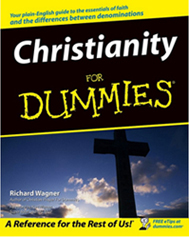
Volume 18, Issue 13 (March 27, 2016)
“I’ve Decided It’s Not a Sin!”
By Kyle Pope

One of the most popular sitcoms at the turn of the millennium was a series called Everybody Loves Raymond. One episode featured a humorous clash between the Barone family (who was Catholic) and the Presbyterian family of their son’s future in-laws. At a dramatic moment in the show their future daughter-in-law announced to her parents that she and her fiancé regularly engaged in sexual relations—to which she added, “I’ve decided it’s not a sin!” While these words were written for an actor to read as a part of a comic script, they reflect all too well the way many think about faith, God, sin, and human choices. In today’s world if there is anything still considered to be “sin,” we imagine that our own personal decisions determine what is and is not “a sin.” Is that really the way it works?
Part of this attitude stems from some fundamental misunderstandings about the nature of sin. In 2008, Ellison Research did a survey of over 1000 Americans throughout the fifty states regarding concepts about sin. While surprisingly 87% were still found to believe in the concept of sin, the definition of sin set by the survey reflected the very mindset described above. It defined sin as “something that is almost always considered wrong, particularly from a religious or moral perspective.” The researchers likely worded it that way because they were surveying those who were both religious and non-religious, as well as those who believed in the Bible and did not believe in the Bible, but if sin is simply what human beings consider to be wrong it is no wonder that this changes as culture changes. It is little wonder that the survey found that more Americans believe poor consumer environmentalism is a sin (41%) than forsaking the church assembly (18%). It is no wonder that while 81% of Americans still believe that adultery is a sin, only 43% believe that engaging in sexual thoughts about someone you are not married to is sinful, and only 52% believe that homosexual relations are sinful.* If man is the final say on what defines sin we will never find an absolute standard upon which we can agree. Sin has no real meaning if God is not a part of how it is defined.

Richard Wagner, in his book Christianity for Dummies (Hoboken, NJ: Wiley Publishing, Inc., 2004), part of the popular series of books aimed at simplifying complex topics of study, offers a section entitled “Grappling with the Definition of Sin.” Wagner begins by claiming, “Sin is any deliberate action, attitude, or thought that goes against God.” This moves closer to a more objective definition in that it defines sin as something “against God.” Joseph used that very wording in resisting Potiphar’s wife’s efforts to seduce him, asking her, “How then can I do this great wickedness, and sin against God?” (Gen. 39:9, NKJV). Sin is not what we consider to be wrong, but what God considers to be wrong. While Wagner went on to clarify this further, we should note two things his simple definition does not address: 1) How can we know if God considers something to be against Him? and 2) Is something sinful only if it is deliberate?
While some may recognize that sin is an offense against God they are no closer to an objective standard of defining it if they refuse to acknowledge how we may know God’s will. If there is no revealed standard to which we can look and determine sin we are back to the same attitude we saw in the beginning of our study. I can say I think God considers one thing sin, and you can say “I’ve decided God doesn’t view it as sin!” This allows us to use our own feelings, desires, or cultural mores to determine what we think God does or does not want. The result is confusion. By the same token, if sin is only something that’s “deliberate” that would have to mean that I can do things against God, but so long as I am ignorant of the fact that God considers it a sin, it’s not counted as sin. That would make ignorance a much safer condition in that it would limit the number of things for which we could actually be judged. The need for evangelism would vanish, because it would be better to leave someone ignorant of their sin, than to inform them and bring them into accountability.
In spite of the widespread confusion that exists on this topic it is not as complicated as people try to make it. The Bible offers three very clear and understandable definitions of sin:
1. Sin is the Violation of God’s Law. The apostle John wrote simply, “Whoever commits sin also commits lawlessness, and sin is lawlessness” (1 John 3:4). One cannot simply say, “I’ve decided that speeding is not against the law!” Established authority determines law and only established authority can change law. If sin is “lawlessness” it infers that a Divine law exists which reveals God’s will for mankind. How may we know the demands of that law?
The Israelites were given the Law of Moses as contained in the first five books of the Old Testament, but within that law was promised the coming of Jesus as a “lawgiver” from the tribe of Judah (Gen. 49:10). While Jesus was upon the earth He declared that His words will judge human beings on the Day of Judgment (John 12:47-48) and promised to further reveal Divine will to His apostles after His ascension (John 16:13). Jesus’ apostles claimed that their writings were “the commandments of the Lord” (1 Cor. 14:37), and included them in references to the “Scriptures” (2 Pet. 3:16) which they claimed could make one “complete, thoroughly equipped for every good work” (2 Tim. 3:16-17). New Testament writers explained that although the Mosaic Law is no longer binding (Rom. 10:4; Heb. 8:13), all are now “under law toward Christ” (1 Cor. 9:21). So we may conclude that the law which reveals to us God’s will for human beings is contained in His word as revealed in the Bible. The New Testament specifically reveals to us Christ’s law for man in this age. The violation of the teachings of Christ as revealed in the New Testament, therefore, is sin.
2. Sin is the Failure to Do Good We Know to Do. James wrote, through the direction of the Holy Spirit, “Therefore, to him who knows to do good and does not do it, to him it is sin” (Jas. 4:17). In this we see that sin is not only action that is bad, but failing to do what is good and right. If we see that the Bible teaches a way to live and worship and we fail to follow God’s word we commit sin. If we see that the Bible teaches good deeds and attitudes we are to possess and we fail to practice them we commit sin. This must be balanced with what the Bible also teaches about opportunity. Paul told the Galatians, “Therefore, as we have opportunity, let us do good to all, especially to those who are of the household of faith” (Gal. 6:10). While it might be a good thing to do, I have neither the ability nor the opportunity to feed every hungry person in the world around me. I will not be held accountable for what I’m not capable of doing, but if I fail to do what I should, I commit sin.
3. Sin is Acting with Doubt. In addressing the struggle that Jewish Christians had in eating foods allowed under Christ that were previously forbidden under Mosaic Law, Paul taught that a period of growth and maturity must take place. Until the former Jew became “fully convinced in his own mind” (Rom. 14:5) that he could act, he must not act. Even though it would not be inherently wrong to eat certain foods, Paul explains, “But he who doubts is condemned if he eats, because he does not eat from faith; for whatever is not from faith is sin” (Rom. 14:23). While we cannot decide and determine what is and is not sin, each of us has a responsibility to follow God’s word to the best of our understanding. While our understanding may be wrong, it is always sin to violate our understanding of God’s word. God will hold us accountable for the degree to which we have faithfully followed His word.
Understanding how the Bible defines sin can be a very liberating realization. We are not left to blindly wonder if our behavior is acceptable to God—we can know His will. We don’t have to suffer from the confusion and chaos of a world with no moral compass—we can be confident in the expectations of a God that does not change. But a desire to conform our lives in obedience Christ’s law doesn’t mean our acceptability to God is dependent upon flawlessness. That will never happen! John said, “If we say that we have no sin, we deceive ourselves, and the truth is not in us” (1 John 1:8). The one who loves God, recognizes that Jesus died for our sins, and in appreciation for that act of Divine grace strives diligently to avoid sin. John also said, “Whoever abides in Him does not sin. Whoever sins has neither seen Him nor known Him” (1 John 3:6). While we do not define sin by our choices, we do choose whether to commit sin or not. Following God’s word is the only path our merciful Lord has offered to receive His mercy and overcome sin.

